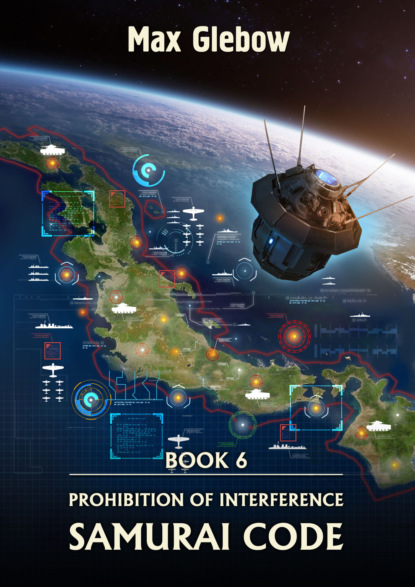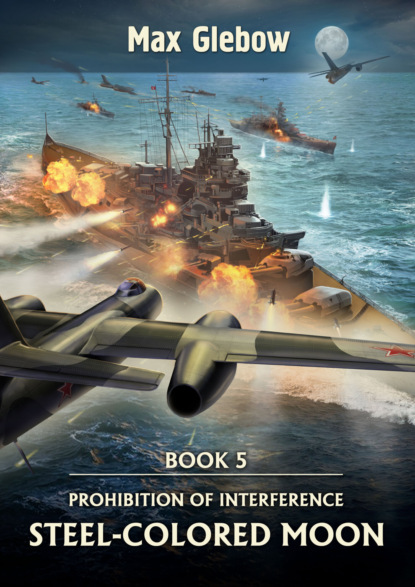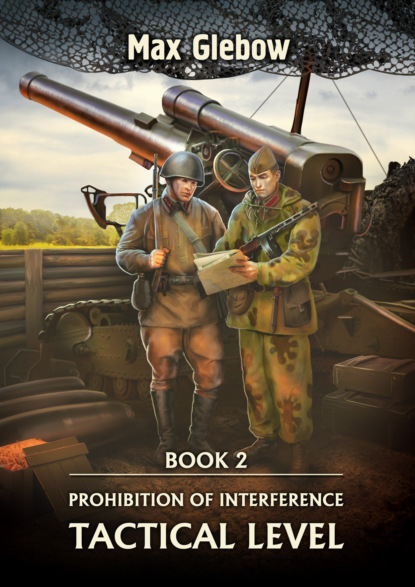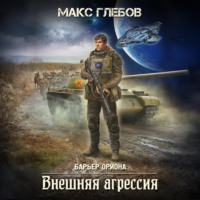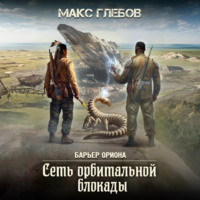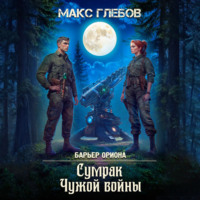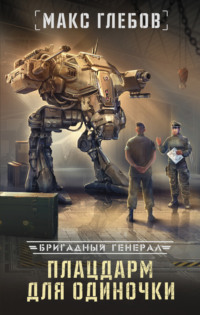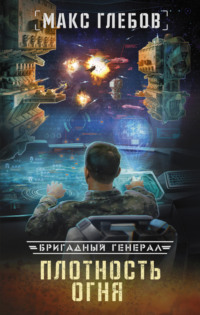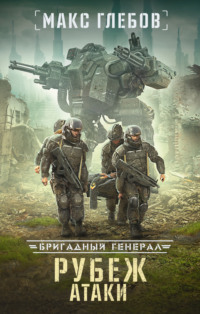
Полная версия
Prohibition of Interference. Book 1
My thoughts were far from optimistic. Perhaps I initially chose the wrong strategy and underestimated all the dangers that awaited me at the front. Or maybe I overestimated the advantages that high-tech equipment and satellites in orbit gave me. It seemed to me now that it was a simple and uncomplicated matter to part with my life in the situation I found myself in, but that surviving and achieving my goals, on the contrary, seemed a rather non-trivial task.
What prevented me, for example, from appearing before the local authorities in a flying suit, with a plasma gun on my belt and a bunch of all kinds of wonderful gadgets that would make everyone here fall into a reverent stupor? Nothing prevented me, well, almost. Would you like, Comrade Stalin, to win the war with few casualties? Go for it! With my group of satellites, your generals will always be ten steps ahead of the enemy in matters of reconnaissance in any depth, all the way to Berlin and the Normandy coast. Do you want minerals from deposits you don't know about and have never heard of? No problem! Here they are, one can see everything from the satellites. Do you want new technology? I can also give them to you, but your scientists will have to work hard with them, as our levels of development are too different. But it is still possible to make a breakthrough on this issue. That sounds great, but… What's next?
And then they'll put you, Lieutenant Irs, in a golden cage with a diamond toilet bowl and a bunch of the best girls you choose, and you'll be forging the country's shield, but, most importantly, not so much a shield as a sword. And around this cage Comrade Beria's best men with the most advanced weaponry in the world, which you yourself would place in their hands, will stand in three rows, and they will have strict orders to eliminate the "alien" object at the slightest threat of it falling into enemy hands. And, of course, to immediately destroy the said object in any of his actions which may directly or indirectly endanger the life and health of the leaders of the Soviet state, as well as its Leninist-Stalinist foundations. Is this the life you dreamed of, Lieutenant?
No, thank you. It is better this way – through the woods, with a primitive rifle in hand, under the threat of being shot or hit by a shell fragment at any moment, but without a gun to your head and the affectionate voice of the Commissar of Internal Affairs over your ear. Because to give what I have to the authorities of any state in this world is only to ruin everything. For the world and for myself.
Of course, this world lived somehow without me, and I think it would have lived for some time, but it is not the first and not the only one. There are many primitive human civilizations scattered throughout the galaxy, and there are even more dead planets where humans once lived. Barely five percent of such worlds survive to the level of development of our Sixth Republic, or rather, only the Sixth Republic itself has survived. Most human civilizations burn up in the apocalypse of nuclear war, perishing completely or rolling back to the level of the Middle Ages, aggravated by irreversibly destroyed ecology and hereditary diseases.
Of the few civilizations that have managed to stay on the edge and cross the chasm, most are dying as a result of man-made, ecological, or social disasters, or often all three at the same time. They are slowly killing the nature of their planet, with their own hands they are turning their own children into appendages of electronic devices, for which virtual spaces become closer and clearer than real people, they legalize drugs and all kinds of perversions, they reform the educational system so that to disaccustom people to think for themselves. More and more decisions are given over to artificial intelligence, which seems to be controlled and understood by its creators, but only up to a certain point. It seems to them that all this is done for people, for their own good, to improve the manageability of society, but at some point a critical mass of hidden contradictions, negative changes in ecology, small but critical errors in the management systems of giant production complexes is accumulated… And an explosion occurs.
And then each civilization has its own unique path to the abyss. Letra showed me footage taken on one of these worlds by scout drones and scientific satellites. In general, this information was considered secret, but not so much that my girlfriend strongly feared the consequences of its disclosure. And then I was scared. Maybe for the first time in my life I experienced such a feeling of fear.
That world died from weapons that got out of control, and those weapons combined the latest developments in psychotropic poisonous substances, advanced nanotechnology and combat viruses. The strain that broke free was not killing living things – it was changing them. The virus itself was only a transport – a capsule for delivering psychotropic poison molecules and nanomachines, compactly packed inside the protein and lipid shells of the viral particle, into the affected organism. The psychotropic drug, entering the bloodstream, subjugated the human mind to the sole purpose of transforming all the people around him into the same ideal and perfect creatures as himself. The nanomachines that infiltrated the body made the infected person strong, insensitive to pain, hardy, and even highly intelligent, in his own way. But all this was short-lived. Such violence to the organism burned it out in a few months, but as long as the host was alive, it acted cunningly and sophisticatedly, trying to infect as many people as possible. The tricky thing about this weapon was that the infected person, after just half an hour of malaise, would feel rejuvenated and full of energy, and this would become visible not only to him, but also to those around him. All diseases, including chronic ones, receded, people felt better, their wrinkles smoothed out, their efficiency increased dramatically. And in the same time, there was an irresistible desire to make everyone around them as happy and young as they were, all they had to do was hold someone's hand, kiss them, or even just exhale air in their direction from a close distance.
But the happiness did not last long. Two months after infection, the old diseases would return with tripled force, followed by new ones, and the person began to age rapidly. Death came from the avalanche-like failure of all body systems. No one has lived more than a hundred days since the infection. The virus spared neither humans nor animals.
The videos Letra showed me were compiled from various sources and very competently edited. In the space of an hour, the last six months of a world that had been coming to its apocalyptic end for millennia passed before my eyes. I never thought it would be so scary to watch.
This example was probably the most striking and shocking, but by no means the only one. Nevertheless, unlike more than two dozen civilizations that failed to survive their 'adolescence', the Sixth Republic was lucky. It happily avoided a nuclear conflict, although it was literally on a knife edge for some of the most dangerous years. Well, then a grandiose breakthrough in space technology prevented the Sixth Republic from plunging into a world of virtual reverie and drug intoxication.
This breakthrough allowed us to escape to the stars, not by single research ships, but en masse, using colonial transports equipped with hyperdrives. The discovery of hypertransition with the then amount of technology and fundamental knowledge could be called a frank miracle, but we were lucky, and deep space gave people purpose and work for decades to come. We had already decided that the worst was over when the Revolt broke out… This insurrection, terrible and irrational, struck several of the largest colonies at once, and then spread to the Metropolis. At that time I was already serving on the lunar base, and because of the strict military censorship I did not know any details except those that were communicated to us by the leadership. A month before the base was killed, a support transport flew in and unloaded a self-deploying anti-space defense system. The batteries dipped into the lunar soil and went on alert, and the transport went back and took my Letra with it. No one else from the central worlds came to us until the rebel cruiser showed up.
Colonel Niven obviously knew something about what was going on in the Metropolis and the colonies, but he wouldn't tell me, even before he died, or maybe he just didn't have time. But I drew a simple but disappointing conclusion – by breaking out into space, we only delayed the death of our civilization, and now it has hit us.
Letra said that we study primitive civilizations to see where the error that leads to self-destruction is. That's why there was a ban on interference – for the purity of the experiment, so to speak. And now here I am, and the ban has been lifted. But what to do, I do not know, or rather, I know exactly what not to do. I will not go to the authorities with my technology and knowledge. If I want to change something and live here happily ever after, and then leave this world to my children and their children's children, I myself must become the power, and take that power non-violently, at least in this country. I buried my hope that someone would come for me from the Metropolis almost immediately. Something in Colonel Niven's voice told me it was foolish to count on that. Well, let's save this world from itself, and at the same time save myself, because I really expect to live here all the 150 years that nature has given me.
I was thinking about global things, but in the meantime, I had to solve current problems.
“Comrade Sergeant, there's a road a kilometer and a half ahead. I can hear the sound of engines,” I reported to the commander.
“Could it be our troops?” Boris, who was walking on the right, asked.
Pluzhnikov immediately reacted to the insubordination:
“Red Army man Chezhin, if you open your mouth again without an order and not for a report, you hand the rifle to Sintsov. Understood?”
“I got it, Comrade Sergeant,” Boris grimaced, “it won't happen again.” But he kept looking at me, waiting hopefully for an answer to his question.
“Squad, halt!” Pluzhnikov softly ordered and signaled Sintsov, who was walking ahead, to stop, “Everybody keep quiet. Listen carefully, Nagulin.”
I closed my eyes.
“The column is going, Comrade Sergeant. Trucks and infantry. The engines are not ours – they are Germans, and there are a lot of them. I hear at least five cars at the same time.”
“Well, trucks I see,” said the Sergeant thoughtfully, “though I don't hear anything at all. But last time you said everything right about the motorcycles, so I guess you heard right here, too. But how could you hear the infantry?”
“The weapons are tinkling. And that sound is spread out over a wide front. It's a big column. At least two companies, I think.”
“So,” the Sergeant thought for a few seconds, “Chezhin, Sharkov, catch up with Sintsov and stay where you are. Take cover in the bushes and don't make a sound!”
“Copu that!” answered the Red Army men softly.
“Nagulin, follow me!”
When we moved a hundred meters away from the road, Pluzhnikov said quietly, “You wanted to ask me something, Nagulin. Now would be a good time to ask.”
I sighed.
“Comrade Sergeant, why did Senior Lieutenant Fyodorov raise his men to counterattack? Well, it was obvious it wasn't going to work out.”
Pluzhnikov nodded. He had obviously been waiting for this question and had prepared an answer in advance.
“This is a war, Nagulin. It is a brutal war, with its own rules, not invented by us, and not for us to change. The Army Regulations require a Red Army man to lead an offensive battle. It says that if the enemy imposes war on us, the Workers and Peasants' Red Army will be the most attacking army ever. And the offensive battle consists in the decisive movement of the entire battle order forward and is conducted by suppressing the enemy with all the power of fire, attacking his battle order with all the forces. That's how Comrade Senior Lieutenant Fyodorov acted. And you, fighter, do you think he should have run away?”
“An organized retreat in the face of superior enemy forces is not running away, Comrade Sergeant,” I objected, “Fleeing is abandoning a position contrary to an order from a superior commander, and did Comrade Fyodorov have orders to defend that railroad embankment to the last man? Or maybe he had orders to attack the German company column that came out from behind the woods? No! His orders were completely different. Comrade First Lieutenant had to deliver the men entrusted to him to the assembly point in Uman, where representatives of the units that had suffered losses in the battles with the enemy were already waiting for them.
That was the order, in my opinion, that should have been followed, considering all the circumstances, including the wounded we had on our hands and the lack of weapons in most of the detachment. Everything I proposed before and during the battle was aimed precisely at saving men and carrying out the orders of the command. And what happened? You saw it yourself, Comrade Sergeant.”
Pluzhnikov gritted his teeth, but remained silent. Apparently, he did not consider today's fight from that point of view. Taking advantage of the pause, I continued.
“And as for the field manual, it doesn't just provide for an offensive combat. The 14th article states that defenses are to be used whenever defeating the enemy by offensive is impossible or impracticable in the circumstances. And the 22nd article explicitly states that every case in war is unique and requires a special solution, so in combat you must always act in strict accordance with the situation. In our case, when there is no goal of holding a specific line and the enemy has overwhelming superiority of forces, the manual prescribes actions such as mobile defense, withdrawal from combat, and retreat. All of this is described in Articles 417 through 422. Didn't Comrade First Lieutenant know all this? I don't believe it!”
Listening to me, the Sergeant grew darker and darker, and after I finished, he was silent for another 30 seconds.
“Here's the thing, Red Army man Nagulin,” Pluzhnikov finally answered, “First Lieutenant Fyodorov was my commander, and he died in combat for our homeland, honestly doing his duty. Like any man, he may have made mistakes, but he atoned for them in his death. Let's just say I didn't hear everything you just said to me. I am in the NKVD, in case you have forgotten, and if you were any other Red Army man from our unit, I would have you arrested for attempting to undermine the morale of the unit's men and for defeatist sentiments. But I saw how you behaved in battle. You're an excellent shot, not a coward, not a fool, and certainly not a German collaborator. But you're being silly, and I can't understand why.”
Конец ознакомительного фрагмента.
Текст предоставлен ООО «ЛитРес».
Прочитайте эту книгу целиком, купив полную легальную версию на ЛитРес.
Безопасно оплатить книгу можно банковской картой Visa, MasterCard, Maestro, со счета мобильного телефона, с платежного терминала, в салоне МТС или Связной, через PayPal, WebMoney, Яндекс.Деньги, QIWI Кошелек, бонусными картами или другим удобным Вам способом.


